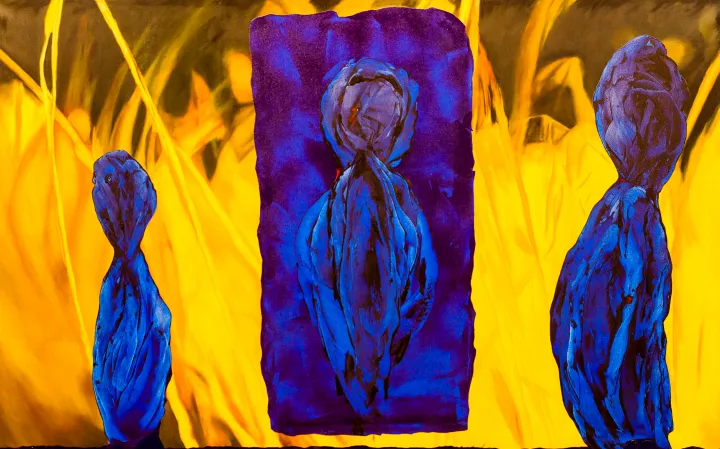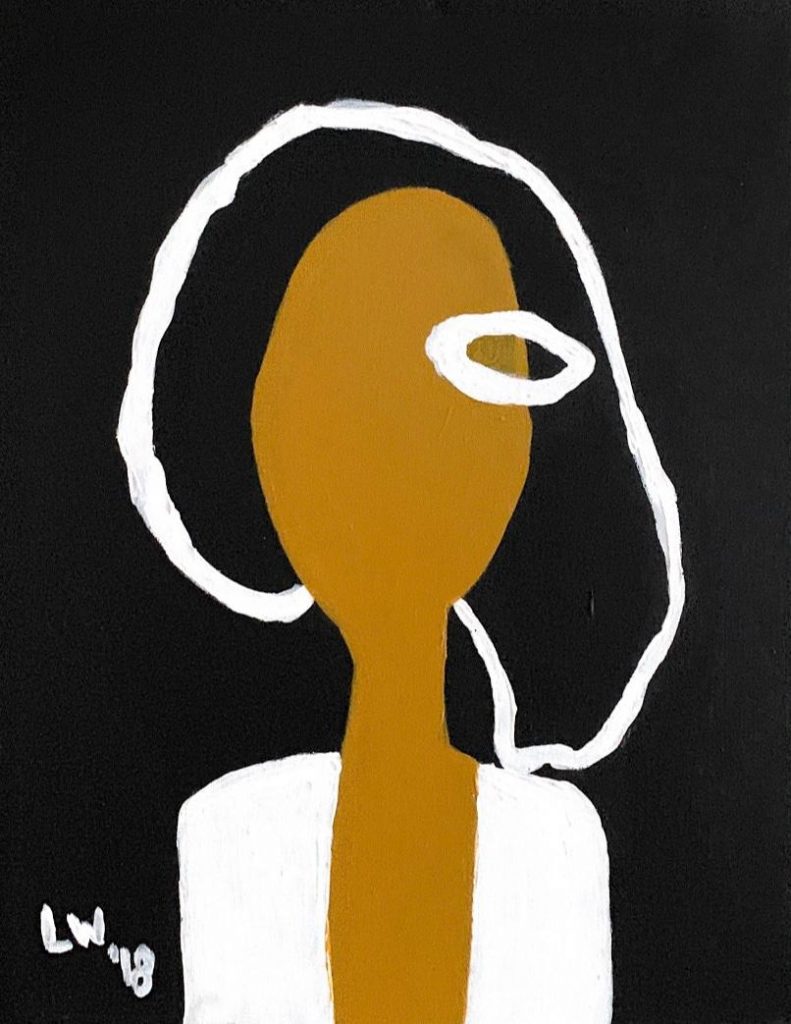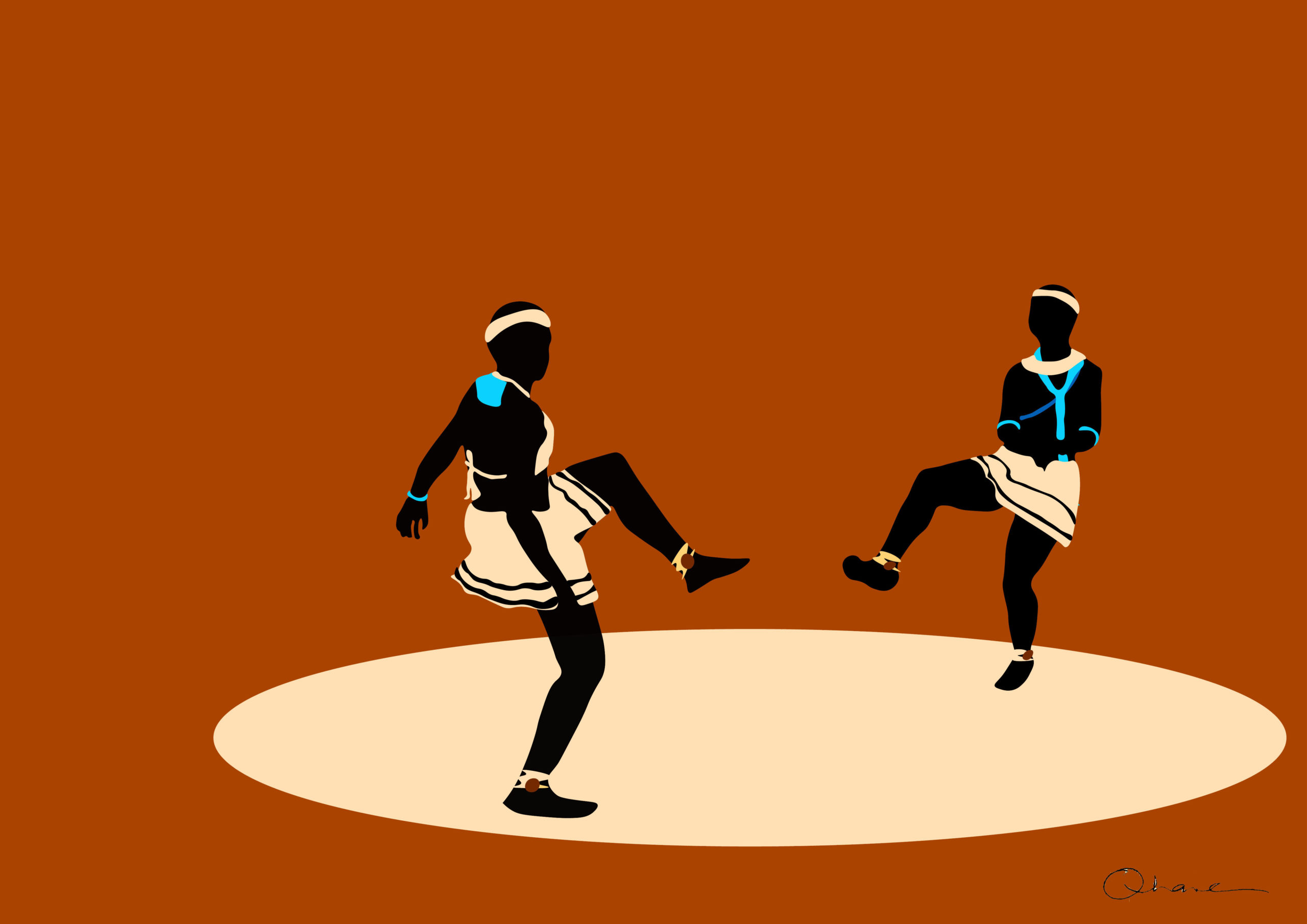Maverick Life
Nomaza Nongqunga Coupez on the art of discovering and buying art

A graduate in biomedical technology, the 39-year old entrepreneur chose to leave the pharmaceutical industry to promote African artists in France.
Born in Ngqeleni – which means “cold” in Xhosa – a little village in the Eastern Cape 32km south of Umtata, Nongqunga Coupez was the third child in a family of five.
“I remember the landscapes, the rivers, the forest, the small huts with animals everywhere. I remember the rain on the zinc rooftop and the beautiful sound it made… I remember my loving grandparents… I remember going to pick up wood with other women in the nearby forest, or going to the river with the other young girls to fetch water, or just waking up early in the morning to pick up fresh cow dung to clean the house. Being in France now, I realise how lucky I was to have such a beautiful childhood.”
After studying biomedical technology at the Central University of Technology in Free State, she went on to work in private laboratories and for the pharmaceutical industry for a few years. At 28, Nongqunga Coupez moved to France with her husband, and settled in Mandelieu-la-Napoule, a town situated on the banks of the Mediterranean Sea, on the French Riviera. The change of scenery and culture sparked many questions and provided the perfect opportunity to explore and do something a little different from her previous jobs.
Soon, she noticed how much France’s economy, especially in the southern region, was focused on tourism; cities and départements ran culture-focused programmes that highlighted local craftsmanship and artisanat as a way to develop collaborations and partnerships with different countries around the world, and attract more visitors to its museums, galleries and cultural sites. Yet, it seemed to her that very little was done around the promotion of African art in the country.
“I quickly realised that I was in a country that was tourism-driven and that culture was a commodity. Our city knows the value of tourism; as a result, they have designed strong cultural programmes (based on) their museums, theatres, fashion, and food. I saw many countries like China, Russia, Saudi Arabia, etc. promote their culture in France, however it was very rare to see African creatives, especially in the visual art sector, showcasing their works in France. The ones I saw were visual artists that were already established in their countries, so (only) a very small percentage”, she explains.
There was a gap in the market and that wasn’t all – the art industry in France and in Europe in general, can be elitist and exclusive, celebrated by and with only a very few, making it both difficult for newer art dealers to enter the market and emerging artists with no specific connections to sell their work; it is also an opaque world that often privileges the wealthiest.
Back in 2019, founder of the 1-54 Contemporary African Art Fair Touria El Glaoui explained in an interview with Artnet News, that the art world was “founded on — and playing a significant role in — colonial, capitalist, and patriarchal structures, (it) undoubtedly favours those from particular demographics with influential networks and financial wealth”.
Critiques and artists also point out the colonial bias Western museums have towards African art and heritage. The need for a platform dedicated to African artists seemed evident and so, Undiscovered Canvas was born in 2017, with one goal: “Promoting investment in African arts.”
Although Nongqunga Coupez is aware that as a “one-woman show”, with only three years of experience in the art world, there is still a lot to be done, her dual strategy, promoting and supporting artists through yearly art residencies. is effective.
She selects artists, from Africa and the diaspora, who are not yet established or might not be well-known on the art market and promote them via her digital platforms and her website; it is a great strategy both for investors and people interested in art but who might be intimidated by art galleries; and it’s a powerful springboard for artists who want to explore selling on the international market.
“I look for the hidden gems. Artists that are extremely talented but from disadvantaged and marginalised environments, and who need the opportunities the most. When I chose an artist, I ask myself: what is the value Undiscovered Canvas (can add) to this artist?”
At the moment, Undiscovered Canvas represents over 20 artists, who use different materials – painting, multimedia, ceramic, sculpture and photography; her book includes the works of South African artists Lulama Wolf, whose paintings are deeply moving and feminine, an exploration of Africa pre-colonialism and traditionalism experienced through a contemporary lens; Phila Hillie – an artist, illustrator and architecture graduate who creates powerful digital collages that shine a light on South African women – images of the body in movement, empowered silhouettes, safe, beautiful and majestic; or Zimbabwean Mathias Chirombo.

Self Portrait by Lulama wolf (Image courtesy of Undiscovered Canvas)

Xhentsa by Phillie Allie (Image courtesy of the artist)
Talking about Chirombo, Nongqunga Coupez says, “Mathias is an artist born in a family of an African spiritual culture, his work is influenced by spirit mediumship and customs; dreams are a rich source of inspiration for his art making, and (he uses) spirituality and emotions to direct him in (his) search for meaning and guidance. The spirit world is identified as existing intangibly and only the effects it has on matter reflect its presence where it may be seen by some as of utmost importance.
“I personally draw strength and understanding from Mathias’ works and our conversations. This particular piece gave me understanding and clarity during the first two weeks of our confinement in France. As the world felt like it was falling apart I needed to be calm, find my centre and my voice. As a result, I was able to regain my confidence and move forward with clarity and determination”, she adds.
The young entrepreneur recommends that anyone interested in buying art should buy based on “love at first sight”. If the artwork doesn’t speak to you, no matter who is behind it, you shouldn’t invest in the piece.
“But when one starts to collect, the first question is ‘why?’, as the intent is as important (as a crush on a piece). It is the ‘why’ that would then drive (one’s) selection and make your collection meaningful. I think in time a collection done with intent gains value,” she notes.
Like many businesses around the world, the pandemic and especially the lockdown has had a profound impact on Undiscovered Canvas.
“I had exhibitions planned between Cannes and Monaco. My second edition of the (art) residency was going to start in May and this time I was inviting a female South African visual artist to live and work in France for three months. These events had to be postponed and with them, all the opportunities that would have come along.” Yet, Nongqunga Coupez used that time to rethink her strategy, shift her communication process to social media and more so Instagram and YouTube; she used both platforms to stream interviews she had with artists on her book, and will soon be launching a limited edition of selected works from different artists, specifically targeting young and first-time collectors.
Now that France has ended its lockdown – at least for now – Nongqunga Coupez has also launched in Antibes, not far from where she’s based, the Undiscovered Canvas Concept Store, a space where she will be “showcasing the best creative talents from the African continent, with a variety of rare objects that are ethically sourced, chic and inspired by the richly diverse cultural heritage of the motherland, consisting of art, fashion, jewellery, and design furniture”. DM/ML
To view the artists represented by Undiscovered Canvas and get in touch with Nomaza Nongqunga Coupez, click here.

















 Become an Insider
Become an Insider